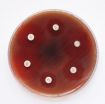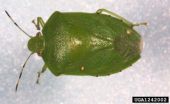(Press-News.org) The global diversity of plants being cultivated by Britain's gardeners is playing a key role in the fight to save the nation's threatened bumblebees, new research has revealed.
Ecologists at Plymouth University, in a study published this week, have shown the most common species of bumblebee are not fussy about a plant's origin when searching for nectar and pollen among the nation's urban gardens.
But other species – and, in particular, long-tongued bees – do concentrate their feeding upon plants from the UK and Europe, for which they have developed a preference evolved over many millennia.
Dr Mick Hanley, Lecturer in Ecology at Plymouth University, said the study showed the continued importance of promoting diversity and encouraging gardeners to cast their net wide when choosing what to cultivate.
"Urban gardens are increasingly recognised for their potential to maintain or even enhance biodiversity," Dr Hanley said. "In particular, the presence of large densities and varieties of flowering plants supports a number of pollinating insects whose range and abundance has declined as a consequence of agricultural intensification and habitat loss. By growing a variety of plants from around the world, gardeners ensure that a range of food sources is available for many different pollinators. But until now we have had very little idea about how the origins of garden plants actually affect their use by our native pollinators."
The study, in the forthcoming April issue of the journal Annals of Botany (published by Oxford University Press), set out to examine whether bumblebees preferentially visited plants with which they share a common biogeographical heritage, with researchers conducting summer-long surveys along a typical residential street.
It showed that rather than discriminating between Palaearctic (a range extending across Europe, north Africa and northern Asia) and non-Palaearctic garden plants, bees simply visited plants in proportion to flower availability. Indeed, of the six most commonly visited garden plants, only one – Foxglove – was a British native and only three of Palaearctic origin.
Among individual species, however, there were distinct preferences, with the long-tongued 'garden bumblebee' (Bombus hortorum) showing a strong preference for 'native' Palaearctic-origin garden plants, choosing them for 78% of its flower visits. Meanwhile, the UK's most common species – the 'buff-tailed bumblebee' (Bombus terrestris) – favoured non-Palaearctic garden plants over species with which it shares a common evolutionary heritage.
Dr Hanley added: "As a general rule, bees will go wherever there are flowers available. However, if native plants were to disappear completely from our towns and cities, the long-term survival of some of our common pollinators – like the 'garden bumblebee' – could be in jeopardy. In addition to growing truly native plants like foxgloves, where possible, gardeners can help native pollinators by setting aside a small area to allow native brambles, vetches, dead nettles, and clovers to grow. But as long as some native species are available in nearby allotments, parks, or other green spaces, a combination of commonly-grown garden plants from all around the globe will help support our urban bumblebees for future generations."
INFORMATION:
Diversity in UK gardens aiding fight to save threatened bumblebees, study suggests
2014-03-19
ELSE PRESS RELEASES FROM THIS DATE:
EU could afford to lead international climate action
2014-03-19
Major emitting countries may have to join the EU's effort much earlier to avoid a temporary overshoot of the 2 degree target, but even if they joined only in 2030, the overshoot would be limited to roughly 0.2 to 0.4 degrees Celsius. The initial unilateral leadership could be achieved at little extra costs for the EU. Late-comers would have the benefit of lower costs while they delay action but would face higher transient costs once their turn to decarbonize comes.
"The crisis-stricken EU is asking itself whether it can still afford climate leadership" says lead-author ...
Rush to prescribe: Study questions speed in giving antidepressants to grieving parents
2014-03-19
TALLAHASSEE, Fla. — Some doctors are too quick to prescribe antidepressants to parents who have suffered the death of a child either during pregnancy or within the first month of life, according to a study conducted by Florida State University researcher Jeffrey R. Lacasse.
In a study of 235 bereaved parents participating in an online support community, Lacasse found that 88 — or 37.4 percent — of them were prescribed a psychiatric medication to help them cope. Some women received prescriptions with a week of losing their children.
"This is simply too soon after the ...
Global attack needed to catch credit thieves
2014-03-19
EAST LANSING, Mich. — Stopping massive data breaches like the one that hit Target will require a more sophisticated, collaborative approach by law enforcement agencies around the world, a Michigan State University cyber security expert argues.
In a new research report for the National Institute of Justice, Thomas Holt found many hackers and data thieves are operating in Russia or on websites where users communicate in Russian, making it easier to hide from U.S. and European authorities. All countries need to better work together to fight hacking and data theft campaigns, ...
Pocket diagnosis
2014-03-19
A recently-developed mobile phone application could make monitoring conditions such as diabetes, kidney disease, and urinary tract infections much clearer and easier for both patients and doctors, and could eventually be used to slow or limit the spread of pandemics in the developing world.
The app, developed by researchers at the University of Cambridge, accurately measures colour-based, or colorimetric, tests for use in home, clinical or remote settings, and enables the transmission of medical data from patients directly to health professionals.
Decentralisation ...
Comeback of an abandoned antibiotic
2014-03-19
This news release is available in German. The common bacterium Streptococcus pyogenes is responsible not only for scarlet fever, a childhood disease presenting with characteristic skin rash, but also for many suppurative infections of the skin. The infection can be associated with serious consequences such as acute rheumatic fever and inflammation of the kidneys. In Germany, physicians usually prescribe penicillin, an antibiotic. In less-developed countries, penicillin is not always an option though. Firstly, penicillin is often not available and secondly, co-infections, ...
A majority prefers letting computers decide
2014-03-19
When individuals engage in risky business transactions with each other, they may end up being disappointed. This is why they'd rather leave the decision on how to divvy up jointly-owned monies to a computer than to their business partner. This subconscious strategy seems to help them avoid the negative emotions associated with any breaches of trust. This is the result of a study by scientists from the University of Bonn and US peers. They are presenting their findings in the scientific journal "Proceedings of the Royal Society B."
Trust is an essential basis for business ...
Planting cotton early may mean less stink bug damage
2014-03-19
Stink bugs have been consistently ranked among the most damaging insect pests of cotton in the southeastern United States for the past several years. Apart from the feeding damage, stink bugs are capable of transmitting cotton seed and boll-rotting bacteria such as Pantoea agglomerans.
In order to find out whether cultural practices could be used to manage stink bugs -- such as adjusting the date of planting to mitigate peak pest pressure -- researchers from the University of Georgia compared cotton plots that were planted in May to other plots that were planted in June.
The ...
Launching a botanical journal on the verge of WWI: the politics of the AJB
2014-03-19
One hundred years ago on the brink of WWI, American botanists changed the course of plant science with the founding of a national publication, the American Journal of Botany. The journal not only endured through the Great War, it also continued to evolve through the wars that followed, the Great Depression, and the ever-changing arena of plant research.
Today, the AJB remains at the forefront of essential botanical research as the flagship journal of the Botanical Society of America. In celebration of its centennial anniversary, science historian Betty Smocovitis takes ...
Football displays fractal dynamics
2014-03-19
Football fascinates millions of fans, almost all of them unaware that the game is subject to the laws of physics. Despite their seemingly arbitrary decisions, players obey certain rules, as they constantly adjust their positions in relation to their teammates, opponents, the ball and the goal. A team of Japanese scientists has now analysed the time-dependent fluctuation of both the ball and all players' positions throughout an entire match. They discovered that a simple rule governs the complex dynamics of the ball and the team's front-line. These findings, published in ...
Rice grad student deciphers 1,800-year-old letter from Egyptian soldier
2014-03-19
A newly deciphered 1,800-year-old letter from an Egyptian solider serving in a Roman legion in Europe to his family back home shows striking similarities to what some soldiers may be feeling here and now.
Rice Religious Studies graduate student Grant Adamson took up the task in 2011 when he was assigned the papyrus to work on during a summer institute hosted at Brigham Young University (BYU).
The private letter sent home by Roman military recruit Aurelius Polion was originally discovered in 1899 by the expedition team of Grenfell and Hunt in the ancient Egyptian city ...







